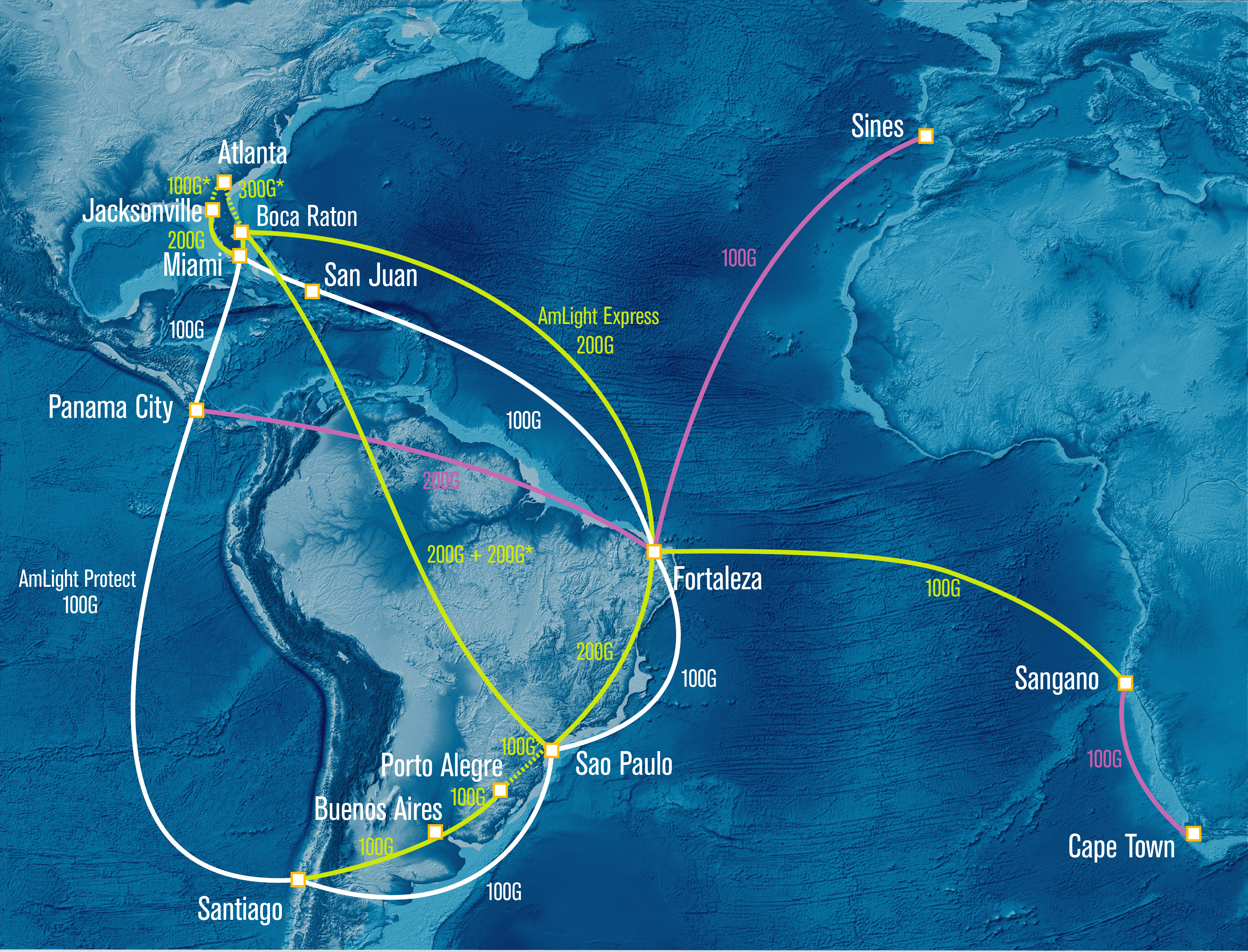The “Bridging Europe, Africa, and the Americas” (BEAA) Collaboration was established in 2022 through the joint efforts of seven leading regional and national Research and Education networks and organizations spanning multiple continents. The primary objective of this initiative was to bolster the resilience of networks across a series of transoceanic links, connecting communities in Eastern and Southern Africa, Europe, and Latin America.
The BEAA Collaboration was solidified with the signing of a Memorandum of Understanding (MoU) among key players such as Amlight/the Florida International University Board of Trustees, GÉANT, RedCLARA, RNP, the Council for Scientific and Industrial Research (CSIR), SANReN/TENET, and the UbuntuNet Alliance. This consortium committed to collaborating for an initial span of three years, during which they would mutually provide backup support through high-capacity links and resources.
The agreed-upon backup connectivity played a crucial role in ensuring the uninterrupted continuity of advanced Research and Education collaborations between these regions, even when facing service disruptions. The participating organizations harnessed the additional capacity provided by the backup arrangements to transmit large volumes of data essential for data-intensive research projects. Noteworthy among these was the utilization of Earth Observation (EO) data from the European Union’s Copernicus program.
By ushering in a new era of collaboration in Research and Education among Europe, Africa, and the Americas, the BEAA agreement demonstrated an increasingly resilient, adaptable, and interconnected global R&E networking ecosystem. This collaboration was well-positioned to empower scientists across the globe in tackling the significant scientific challenges of that time.
